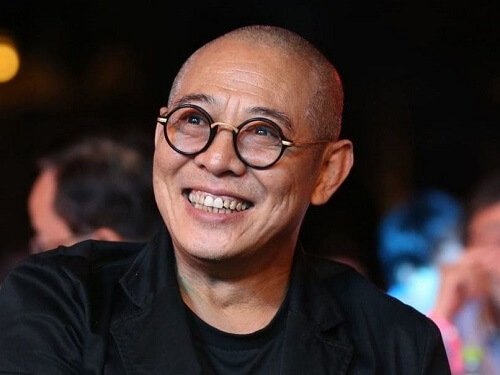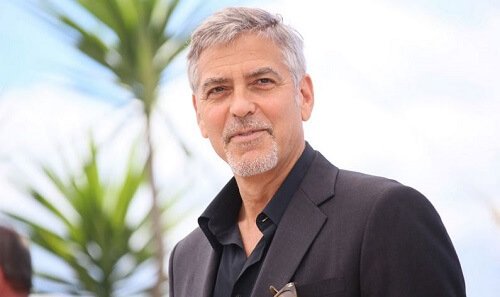In this article, here is the full details of Jet Li about wiki, biography, date of birth, birthplace, zodiac sign, nationality, hometown, age, height, weight, father, mother, family, girlfriend, wife, relationship status, children, profession, education, career, net worth, facts, Wikipedia, and many more.

Introduction
Jet Li, a name synonymous with martial arts excellence and action movie stardom, has carved a career that spans decades, continents, and genres. From a young boy practicing martial arts in the streets of Beijing to becoming one of the most well-known international stars in Hollywood and beyond, Jet Li’s story is a testament to hard work, perseverance, and the transformative power of martial arts. His influence not only as a martial artist but also as a cultural ambassador and philanthropist has made him one of the most revered figures in the entertainment industry.
This article explores the life and career of Jet Li, from his humble beginnings in Beijing to his rise to global fame, delving into his personal struggles, triumphs, and the impact he has had on martial arts, film, and the world at large.
Early Life: Humble Beginnings in Beijing
Jet Li was born on April 26, 1963, in Beijing, China, under the name Li Lianjie. Growing up in a turbulent time in China’s history, he was exposed to the hardships of post-revolutionary life, a reality that shaped his early years. His father passed away when Li was just two years old, leaving his mother to raise him and his siblings alone. Li’s family lived in relative poverty, which added a layer of struggle to his formative years. Despite these challenges, his mother was determined to provide a better life for him, fostering a resilient mindset that would shape his future success.
Li’s introduction to martial arts came at a very young age. At the age of eight, he enrolled in the Beijing Wushu Team, a decision that would alter the course of his life forever. Wushu, a traditional Chinese martial art that combines performance, competition, and self-defense, became his passion. His natural talent for the sport quickly became evident, and under the guidance of his coach, Li’s skills began to flourish. His dedication and relentless practice paid off, and by the time he was 11 years old, Jet Li had already won the National Wushu Championship, a significant accomplishment for such a young athlete.
As a child prodigy in martial arts, Li’s potential was immediately recognized, and he was soon traveling around China to compete in tournaments. His rise to prominence in the martial arts world was swift, and by his teens, Li had become one of the most accomplished martial artists in China, gaining attention from both local and national audiences.
Transition to Film: Martial Arts Stardom
Jet Li’s introduction to the world of film came as a natural progression from his success in martial arts competitions. At the age of 18, Li was recruited to star in the film Shaolin Temple (1982), directed by Zhang Xinyan. The film was a massive success in China, catapulting Li into stardom. Shaolin Temple told the story of a young man who seeks refuge in a Shaolin monastery, where he trains in martial arts to avenge his family’s death. Li’s portrayal of the protagonist, a skilled and determined martial artist, earned him widespread acclaim and immediately marked him as a rising star in the Chinese film industry.
Following the success of Shaolin Temple, Li was offered numerous roles in martial arts films, solidifying his place in Chinese cinema. He starred in The Burning of the Imperial Palace (1983), Martial Arts of Shaolin (1986), and Lion Roars (1987), each time showcasing his incredible martial arts skills and versatility as an actor. By the late 1980s, Jet Li had become one of the most sought-after actors in China, and his popularity was beginning to spread to international audiences.
It was during this time that Li began to work with some of the most influential filmmakers in Hong Kong cinema, including director Tsui Hark. His work in films like Once Upon a Time in China (1991), where he played the legendary folk hero Wong Fei-hung, became iconic and further solidified his reputation as one of the most skilled martial artists and actors in the world. The Once Upon a Time in China series, which spanned multiple sequels, became a beloved franchise and is considered one of the most significant contributions to martial arts cinema.
Li’s popularity in Hong Kong cinema grew exponentially throughout the 1990s, with iconic roles in films such as Fist of Legend (1994) and Tai Chi Master (1993). These films showcased his remarkable martial arts skills and his ability to perform complex stunts and fight choreography. By this time, Jet Li had become a household name not only in China but also across Asia and the international film community.
International Fame: Hollywood Breakthrough
As Jet Li’s fame in Asia grew, it wasn’t long before Hollywood took notice. In 1998, Li made his Hollywood debut in the film Lethal Weapon 4, starring alongside Mel Gibson and Danny Glover. Though his role was initially a supporting one, Li’s performance as the villain, the martial artist and Chinese triad member Wah Sing Ku, quickly captured the attention of American audiences. His performance was lauded for its blend of physicality and charisma, and it marked the beginning of his career in Hollywood.
Following the success of Lethal Weapon 4, Jet Li was offered more significant roles in Hollywood films. In 2000, he starred in the film The One, a science fiction action movie that showcased his martial arts prowess and ability to perform complex fight sequences. His performance in The One helped solidify his place as one of the top action stars in Hollywood.
However, it was his role in Romeo Must Die (2000), a film directed by Andrzej Bartkowiak and starring alongside Aaliyah, that truly launched Li into Hollywood stardom. In this film, Li played a former cop seeking revenge for the death of his brother, blending martial arts with action and drama in a way that appealed to both Eastern and Western audiences. The success of Romeo Must Die made Jet Li a recognizable face in Hollywood, and it paved the way for his future success in Western films.
Jet Li’s subsequent Hollywood roles in Kiss of the Dragon (2001), The Transporter (2002), and Cradle 2 the Grave (2003) continued to establish him as a top-tier action star. His ability to perform breathtaking fight sequences, combined with his acting chops, earned him a devoted following in the West. His work in these films made him one of the most prominent martial arts stars of the early 21st century.
In 2008, Jet Li joined forces with fellow action stars Jackie Chan, Chris Tucker, and Owen Wilson for the film The Forbidden Kingdom, which was a major box-office success and marked the first time that Li and Chan had appeared together in a film. The film’s mix of martial arts, fantasy, and action appealed to both Eastern and Western audiences, and Li’s role as the legendary martial artist, the Silent Monk, further cemented his reputation as a martial arts legend.
Li also starred in The Expendables (2010), a film directed by Sylvester Stallone that brought together a dream team of action stars, including Stallone, Arnold Schwarzenegger, and Bruce Willis. Li’s role as Yin Yang, a highly skilled martial artist and former member of the elite mercenary team, demonstrated his continued relevance in the action film industry. The success of The Expendables series, which spawned multiple sequels, showcased Jet Li’s enduring popularity and influence in Hollywood.
Personal Life: Family and Spirituality
Despite his success in the film industry, Jet Li has always maintained a relatively private personal life. He married his first wife, Huang Qiuyan, in 1987, and the couple had two daughters together before divorcing in 1990. In 1999, Li married Nina Li Chi, a former actress, and the couple has two daughters together. Family has always been an important part of Li’s life, and despite his demanding career, he has often spoken about his love and devotion to his children and wife.
Li’s personal life has also been marked by his deep spiritual beliefs. He is a practitioner of Buddhism and has spoken openly about how his faith has guided him throughout his life, both personally and professionally. His beliefs have influenced his approach to martial arts, and he has often emphasized the importance of balance, discipline, and mindfulness in his training and performances.
Throughout his life, Jet Li has also been involved in numerous charitable endeavors. In 2004, he founded the Jet Li One Foundation, a nonprofit organization focused on improving the lives of underprivileged children in China. The foundation works to provide education, medical care, and other essential services to children in need. Li’s philanthropy is a reflection of his own values and his desire to give back to the community that helped shape him into the person he is today.
Challenges and Health Issues
Despite his success, Jet Li’s life has not been without challenges. Over the years, Li has faced significant health issues, particularly related to his physical well-being. In 2010, he revealed that he had been diagnosed with hyperthyroidism, a condition that can cause fatigue, weight loss, and other symptoms. The condition was exacerbated by years of performing dangerous stunts and fight sequences in his films, which had taken a toll on his body.
In addition to his health struggles, Li has also faced personal challenges. His first marriage, to Huang Qiuyan, ended in divorce, and his journey to find balance between his career and family life has not always been easy. Despite these challenges, Li has remained resilient, using his struggles as a source of motivation for his work and his philanthropic efforts.
Legacy and Impact
Jet Li’s impact on the world of martial arts, film, and popular culture is immeasurable. His rise to international fame helped to bring martial arts films into the global spotlight, inspiring a new generation of fans and filmmakers. His contributions to the genre, along with his incredible skill as a martial artist, have made him an iconic figure in action cinema.
Beyond his success in film, Li’s influence extends to his philanthropy, spirituality, and his role as a cultural ambassador. His work with the Jet Li One Foundation and his commitment to improving the lives of others have made him a respected figure not just in the entertainment industry, but also in the humanitarian world.
As he continues to live his life with purpose and passion, Jet Li’s legacy as a martial arts legend and global superstar is assured. His story, from humble beginnings in Beijing to international stardom, serves as an inspiration to millions around the world.
Conclusion
Jet Li’s journey from a young martial artist in Beijing to a global superstar and philanthropist is a testament to the power of determination, discipline, and the transformative influence of martial arts. His dedication to his craft, his cultural contributions, and his enduring legacy make him one of the most important figures in both the world of entertainment and the martial arts community. His life story is one of triumph, resilience, and the pursuit of excellence, and his influence will continue to inspire generations to come.
Stay connected with the wikimavani to know more about other trending personalities the wiki, biography, date of birth, birthplace, zodiac sign, nationality, hometown, age, height, weight, father, mother, family, boyfriend, husband, girlfriend, wife, relationship status, children, profession, education, career, net worth, facts, Wikipedia, and many more.










